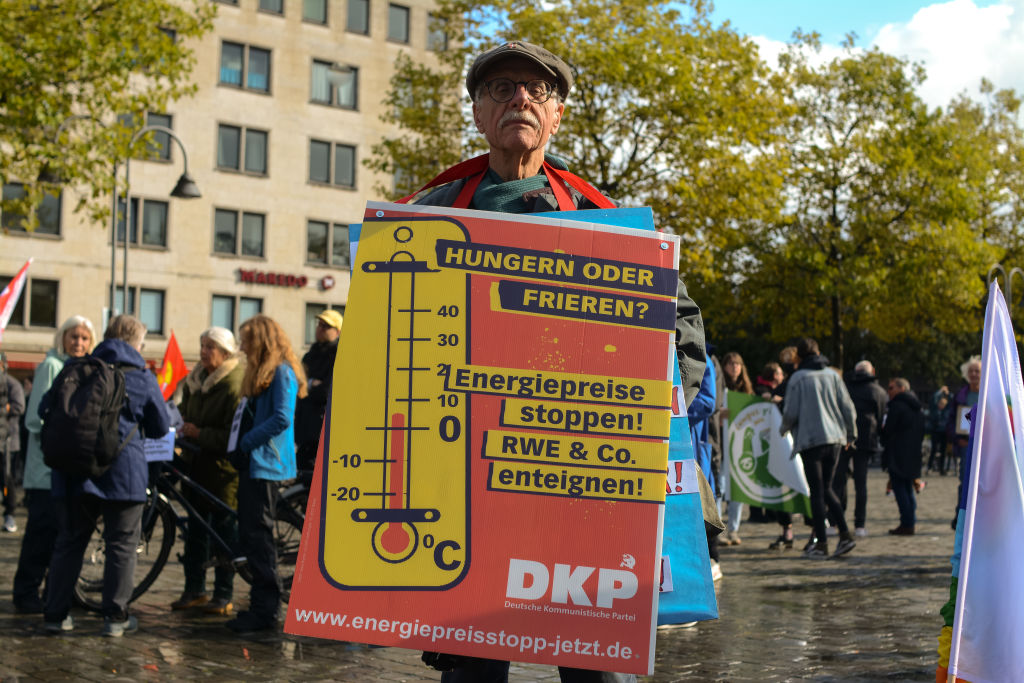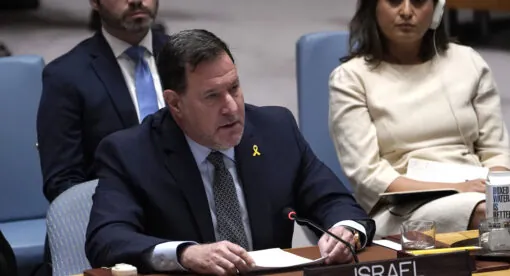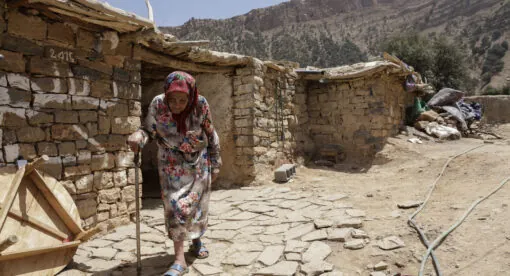The West’s rapid and enduring response to Russia’s shocking invasion of Ukraine has been pivotal. Indeed, Western economic and military aid has allowed Ukraine to survive as an independent and sovereign nation. This support has come at a high economic cost for Germany, however, and that cost is extending to the country’s politics.
In August 2022, the average wholesale electricity price in Germany exceeded 469 euros per megawatt-hour. This is nearly four times the price recorded a year earlier, and it was also the highest figure registered since reunification. The governing coalition of Social Democrats, Free Democrats, and Greens has seen its support plummet to just 39%. Meanwhile, support for the Russia-friendly Alternative for Germany party has risen from 8% at the start of the war to 12% today.
The fear of a winter harsh enough to destabilize the German government and leave it unable to continue acting against Russia’s strategic interests appears to be justified. Despite this, actions taken by the government in April, when energy storage levels were at their lowest since reunification, have given Berlin the chance to see its country through the coming winter. The government’s ability to navigate the challenges ahead will be critical for overcoming both an economic and a political crisis, and guiding Germans to the spring.
Storage and Consumption
The German government has been directing gas supplies into storage since April, increasing its capacity. As of Sept. 9, storage levels were at 118.92 TWh, or 86.95% of capacity. Storage levels are in some cases significantly higher than they have been at any other point this decade. Since the beginning of August, the gas in storage has increased at a rate of one percentage point each day.
The accumulation of stored gas is not only a result of government intervention. It has helped that 2022 has been unusually warm in every month except June, decreasing the need for commercialized gas compared to previous years. Further, the price of fuel jumped from 100 euros per MW-hour at the beginning of March 2022 to a current 210 euros per MW-hour. Though it has impacted the popularity of the so-called Ampel government led by Chancellor Olaf Scholz, the rise in gas prices has also led to less industrial consumption as companies look for alternative sources of energy. Indeed, industrial gas consumption has consistently registered 10% to 20% below 2018 to 2021 levels.
Awareness of the challenging winter to come has enabled a campaign around consumption practices, mobilized in much the same way as the campaign promoting Germany’s extensive recycling system. The government and its gas distribution network regulator are urging citizens and companies to reduce gas consumption. Consumers need to cut their usage by at least 20% to avoid a gas supply emergency – in other words, to avoid reaching the point at which rationing would kick in. Many residences across the country now display recommendations for gas usage, with instructions based on the time of year, temperature, and the hours in which one should use their gas-based heating systems. The public is now aware of the need to limit gas consumption to only essential situations.
The political and economic difficulties stated above might be offset somewhat by Germany’s European partners. For example, a joint statement by the foreign ministers of the Weimar Triangle group showed a surprising change in tone by Poland. Prior to the meeting, Warsaw had been seeking over 1 trillion euros in reparations from Germany. In the statement, Poland promoted energy resource outreach to the wider EU and offered support for Balkan countries’ EU accession efforts. This is seen as a follow-up to the EU’s commitment to energy sharing during the crisis, under the REPowerEU initiative. It also shows Warsaw is responsive to warnings about the possible consequences for the EU if Germany is left to handle a harsh winter without support.
One of the continuing fault lines in the EU is the issue of price caps for gas. This has especially impacted Berlin, possibly triggering Germany to nationalize the gas importer Uniper. And there are few quick fixes; REPowerEU initiatives are aimed at the medium and long term, focused on renewable energy projects that cannot warm houses now.
To face the short-term crisis, the German government has decided to replace all energy imports from Russia, most notably natural gas, by the middle of 2024. As part of this shift, Germany has leased four floating storage and regasification units. These will allow the country to immediately begin importing liquefied natural gas and replace some Russian supplies. Two of the units will be stationed in Wilhelmshaven and Brunsbuettel. Together they will handle up to 12.5 billion cubic meters per year, or around 53% of Germany’s current storage capacity.
German utilities have supply agreements in place with Qatar, Australia, and the United States, and Germany is in talks with countries such as Canada and Qatar to increase their imports of liquefied natural gas. Germany has also passed a bill that allows for the return of oil- and coal-fired power stations to the nation’s energy mix in the event of a dire need gas shortage. This might add 10 gigawatts of reserve capacity on a temporary basis within the duration of a contract that lasts until March 31, 2024. The government has also proposed reintegration of nuclear energy. The Isar 2, Neckarwestheim, and Emsland reactors are operated respectively by E.ON, EnBW, and RWE. Several of these companies have stated that a short-term lifetime extension past Dec. 31, 2022, is achievable without ordering new fuel rods.
The Government Is More Stable Than It Seems
The governing coalition’s approval ratings are low and continuing to decline, with support for sanctions against Russia dropping in parallel. Still, many of the government’s new policies remain popular despite the impact of rising energy costs and inflation. The government introduced a 9-euro train ticket between the start of June and the start of September, hoping to encourage people to rely less on car usage while gas prices were rising. The ticket plan achieved over 1 billion journeys and remains one of the most popular government programs ever produced, with over 38 million people purchasing a 9-euro ticket in Germany. Many Germans expressed their desire to see the plan renewed after the program ended. Furthermore, the government introduced three aid packages totaling 95 billion euros to offset the cost of inflation, including a further cut in taxes on petrol.
Despite its poll numbers, the Ampel coalition remains on solid footing. Post-World War II Germany prioritizes stability, even when risk carries a potentially high reward. Therefore, although the Greens under Annalena Baerbock have surpassed the Social Democrats in popularity, the party is unlikely to break the coalition in hopes of winning a crisis election. For its part, the FDP under Christian Lindner believes that any attempt to undermine the Ampel government would spell doom for the Free Democrats in a subsequent election.
The energy economy will need further intervention, especially considering the factors outside the government’s control. Possible developments in the coming months could include a colder than expected winter, a population not following recommendations for energy use, and the impact on the energy system of the influx of Ukrainian refugees. For the fall and winter, some continuation of rail travel benefits is needed. Moreover, it appears that if Germany wishes to reach its medium-term target for energy offsets from Russian oil and gas, the government will need to bring its nuclear plants back to full capacity. That policy is difficult to implement in Germany, especially with the Greens as the junior partner in the Ampel government.
Finally, the energy crisis has already begun to cause signs of deep economic downward pressure, trending toward recession. To counteract the effects of a pending recession, the government must continue to focus on strengthening the social safety net and preparing for job losses through a work program in critical sectors.
The actions taken by the German government thus far have allayed the worst fears about the German winter. But leaders should not fall to a false sense of security. The winter will be hard, and inaction can make it worse. If the German government does not continue to intervene, the results could be a disaster brought on by free market forces to a state that could not provide for itself. The Scholz government will likely survive the winter, with his Ampel partners huddled alongside. Even with declining popular support, the steadiness of the coalition gives it power that can translate into lasting policy. Should the government continue to produce popular policies and fix its perception problem, the Social Democrats, the Greens, and the Free Democrats stand to become known as the successful navigators of one of the worst political crises in Germany since the Cold War. As such, the goal of the Ampel government should be to expect a difficult winter while preventing a freeze.
Robert Hankins is a former Fulbright Scholar to Germany, Blount Fellow at the University of Alabama, and current FSA Scholar on behalf of the German Federal Office of Education and Culture. He is currently pursuing his Master of Arts in International Relations at American University, where he was the recipient of the Dean’s Scholarship of Leadership for his work on democratization and good governance in his home state of Alabama. His current academic interests include the history of global international relations theory, democratization, and global governance, with a regional concentration in Western and Central Europe.
The views expressed in this article are those of the author and not an official policy or position of the New Lines Institute.






